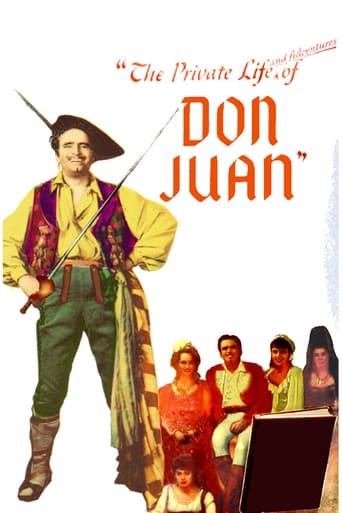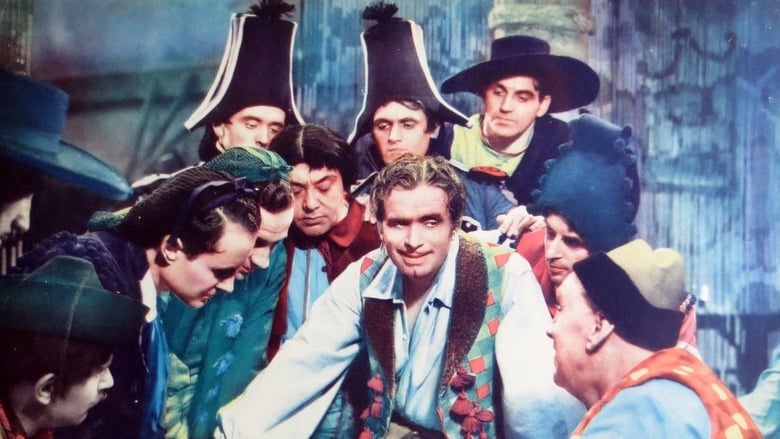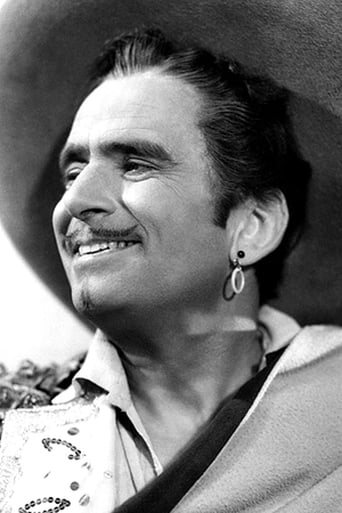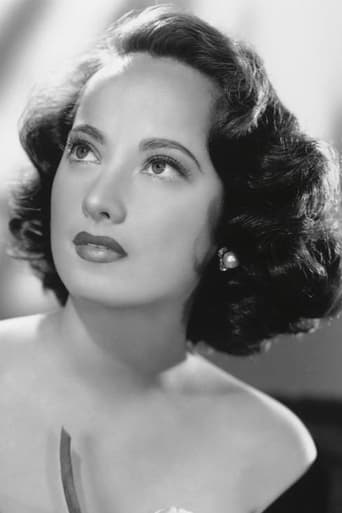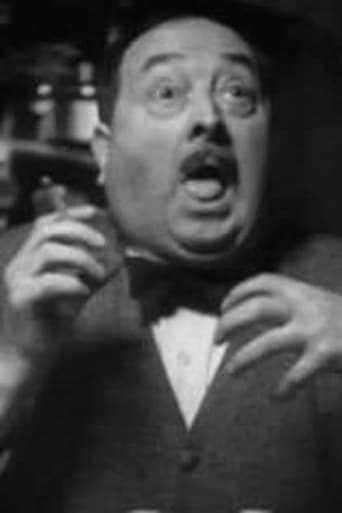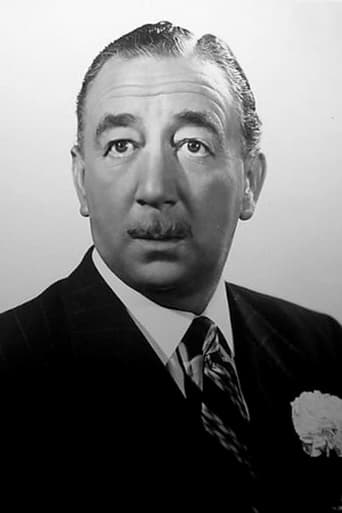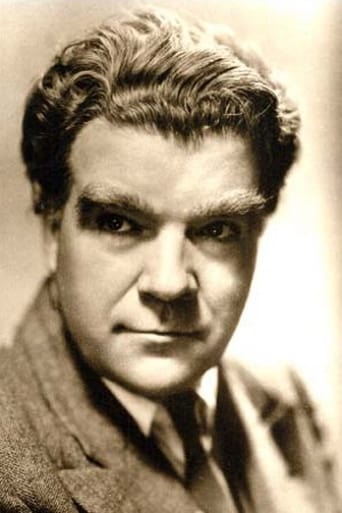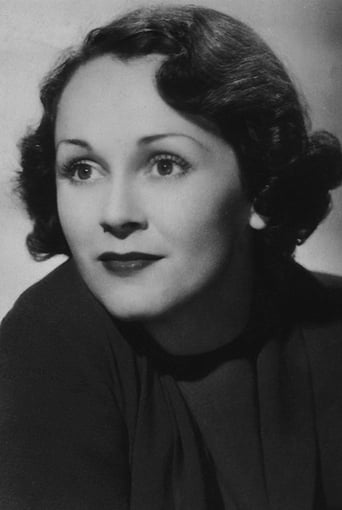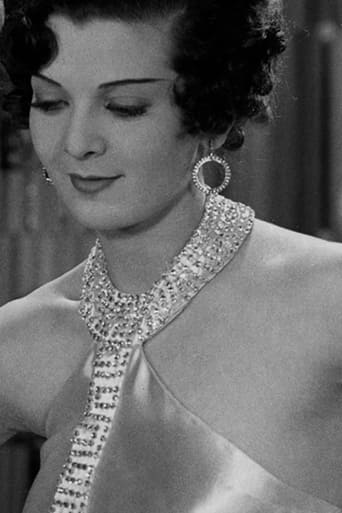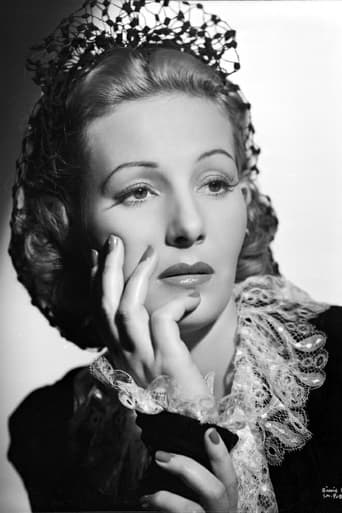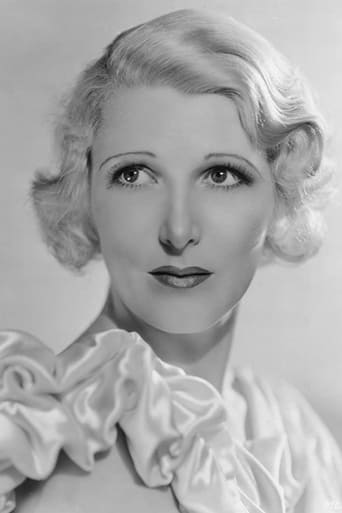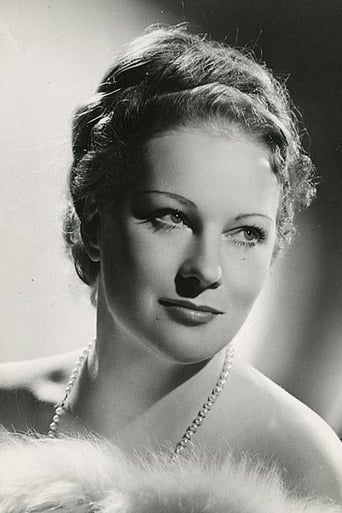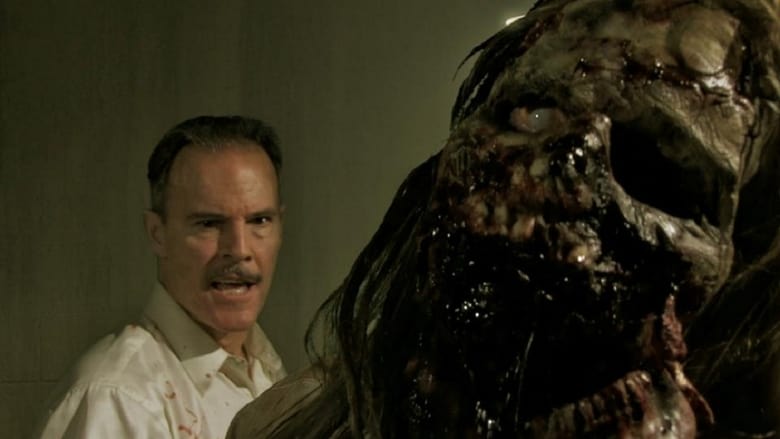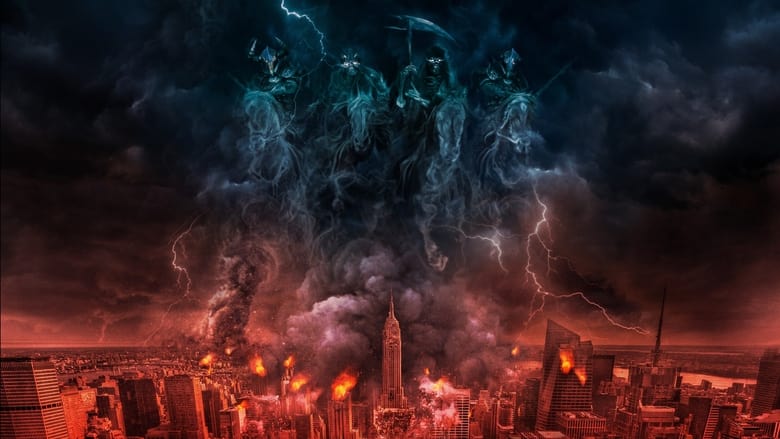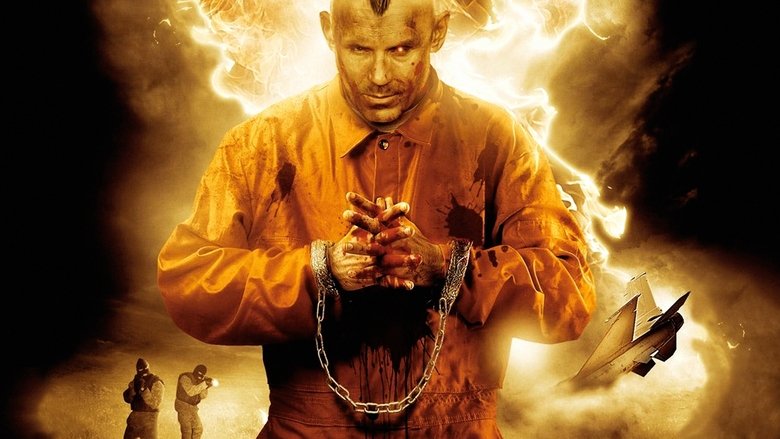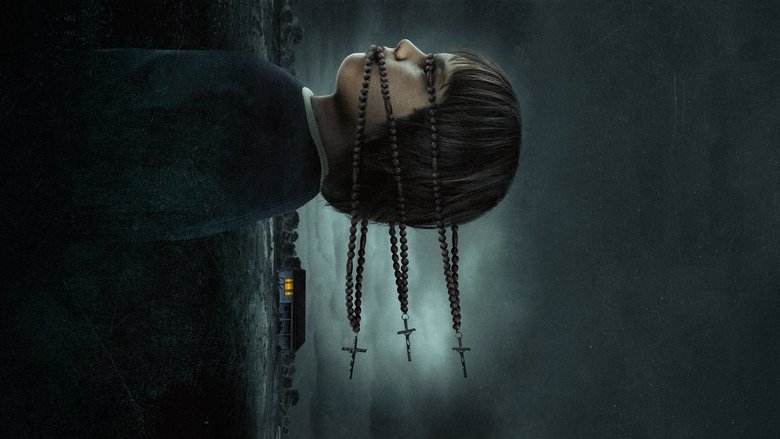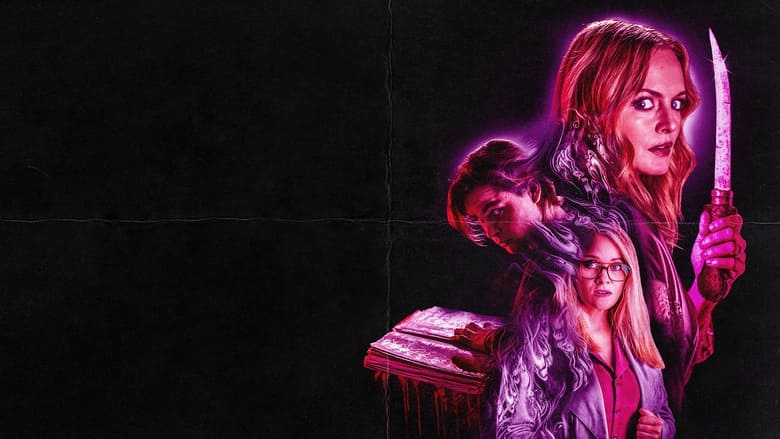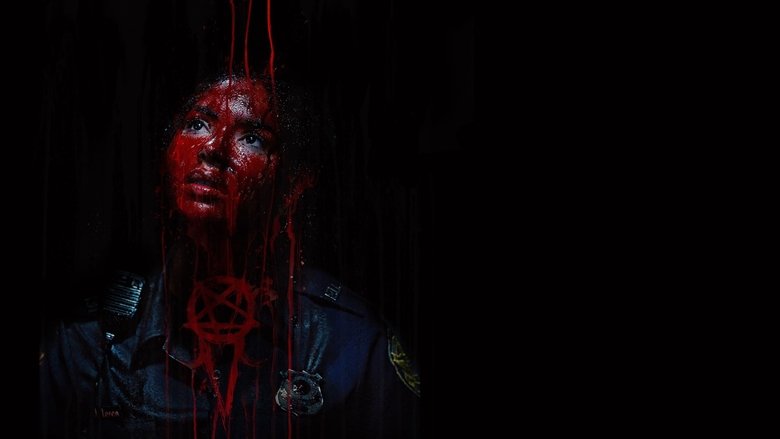What do women want? Don Juan is aging. He's arrived secretly in Seville after a 20 year absence. His wife Dolores, whom he hasn't lived with in five years, still loves him. He refuses to see her; he fears the life of a husband. She has bought his debts and will remand him to jail for two years if he won't come to her. Meanwhile, an impostor is climbing the balconies of Seville claiming to be Don Juan.


Similar titles
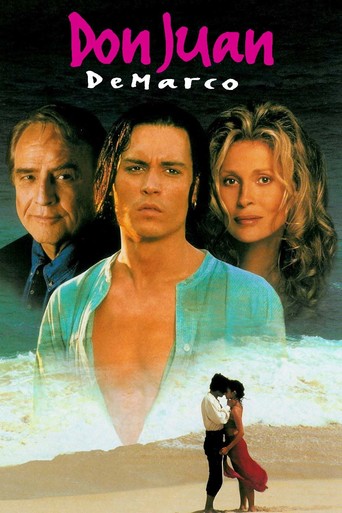
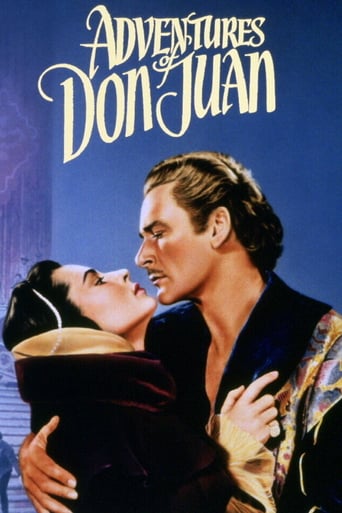
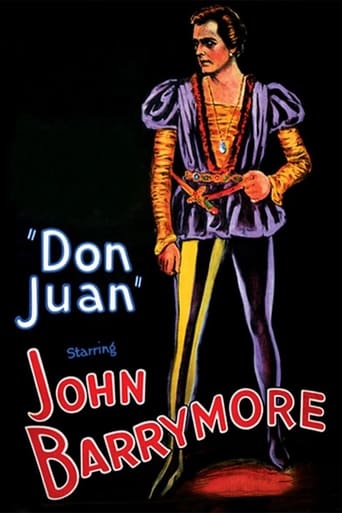
Reviews
For once a Don Juan comedy and with a vengeance - it's a delightful entertainment all the way sugared and spiced with witty ironies galore, where the great Douglas Fairbanks takes the prize in a final victory over the legend of both himself and Don Juan by surviving both with even the crown of a happy ending. The film is studded with a generosity of festivity scenes, each one transcending the other, while the irony celebrates triumphs all the way, especially at Don Juan's own great funeral enjoyed by himself and the final great theatre scene, when he explains to the audience that he really is Don Juan with only roars of laughter for a response. This is magnificent entertainment of the 30s at its best, a feast for the eyes as well as for the intelligence, the script is a wonder of ingenious innovations, the dialogue outwits itself all the time sustaining the comedy vein at a high level with constantly new surprises, and the music isn't bad either. Don Juan is at last allowed to celebrate his ultimate victory!
In 1934, at age 51, Douglas Fairbanks had already decided to end his magnificent and very prolific acting career. Not because he couldn't cope with sound (he had a very nice, strong voice), or with the kind of movies that were popular at the time - he'd originally started as a comedian before he went into the romantic swashbucklers that made him so hugely famous; and in the 30s, screwball comedies were at their height, so he could still have remained a top star for years if he'd wanted to.But he wanted to retire WHILE he was still on top - and while he could still perform some of those marvelous acrobatic tricks that he'd always employed in his swashbucklers as well as in his comedies and that he himself loved so much doing; and so, for his last role, he chose the one famous character that he hadn't impersonated yet among all the classic heroes of romantic fiction, and that suited him so very well: Don Juan - but an aging Don Juan. A Don Juan who had become tired of keeping in shape for balcony climbing and love-making to young ladies, something which required daily training and diet - a kind of self-confession that he conveyed through his role...So he shows us here for the last time a display of his famous sword fighting, balcony climbing, and of course romancing - but at the same time, he parodies not only the self-satisfied Don Juan with the myth that surrounds him, but also himself; he wasn't above that.He was in NO way obliged to admit to his doctor, who calls him "King of Hearts": - "Well, nowadays, when I sit down to a... quiet game with a lady, I'm - no longer sure of holding the card..." Neither to play that scene with the middle-aged innkeeper who has a go at him in a PRETTY unflattering way: "You've no money, no looks, not very much brain - and you're no chicken! You'd make a nice husband..." Neither to have all the young girls of Seville laugh at him when he, who was believed dead, finally steps in in the middle of a stage play about his own 'private life' and declares that HE is the real Don Juan...And yet he DID play all these scenes - because he wanted to. He wanted to say 'goodbye' to acting with a good dose of self-mockery; he was MAN enough not only to admit that time hadn't just passed him by, but to ridicule that fact in such an exaggerated way that again makes us say automatically: "But hey, you're just joking - you ARE the King of Hearts, and you always will be!" So, with this hilariously funny, bright, romantic costume piece full of action and laughter, Doug Fairbanks retired from the acting stage - not in a pathetic, dramatic way, but in a humorous, lovable one that's kept him in the hearts of his fans until this day. So that's the special meaning behind this very enjoyable period comedy-parody that certainly never gets dull or sentimental or boring for one single moment...
Returning old and in debt to Seville, the scene of his youthful triumphs, Douglas Fairbanks Snr as the Don finds a young impostor climbing less adroitly up balconies to get at the city's wives. When the inept lad is run through by a husband, Don Juan enjoys attending his own funeral but is persuaded by Melville Cooper, his sardonic sidekick Leporello, to disappear under an alias to Portugal. Bored and unsuccessful with women there, he leaves when the even-older owner of the inn, Athene Seyler, proposes. Back in Seville, nobody believes that this strange elderly man is the dead Don Juan and he is universally taken for another impostor, even by old flames. Among the host of lovely women it is invidious to pick out Merle Oberon as a gloriously seductive dancer Antonita, Benita Hume as his abandoned but still faithful wife Doña Dolores and Binnie Barnes as a gawky barmaid Rosita. The whole film is tongue-in-cheek, with nobody taking themselves seriously and all acting with Latin extravagance. Picturesque costumes are about 1805, based on Goya's paintings, and there are some ambitious sets. Fine soundtrack throughout, with an opening serenade "Senorita Carmencita" and a running motif of "La Paloma". Good entertainment!
Legendary lover Douglas Fairbanks (as Don Juan) feels the fatigue of advancing years; so, the ageing lady-killer takes advantage of a misunderstanding, and fakes his own death. After a rest, Mr. Fairbanks tries to return to his amorous ways; but, nobody believes he's the real Don Juan. Through it all, Fairbanks fans both new (Merle Oberon as Antonita) and old (Benita Hume as Dona Dolores) flames.A look at the credits of "The Private Life of Henry VIII" (1933) will reveal what filmmaker Alexander Korda had in mind - obviously, with "Don Juan", he hoped to duplicate the success of the earlier "Henry VIII". Unfortunately, this similarly staged "Private Life" found itself coming up short, and is significantly more lowly regarded. Indeed, it is a flat film. Moreover, the supporting cast is introduced in a confusing manner; it's difficult to keep track of who's who.In his last film role, Fairbanks is terrific as an ageing "Don Juan". Interestingly, he succeeds in eliciting the feeling he memorably portrayed "Don Juan" sometime during his 1920s box office reign. Not so, the famed womanizer was played, in fact, by John Barrymore; and, in spirit, by Rudolph Valentino. Still, Fairbanks makes the role personal; undoubtedly, his status as an fading film superstar helped.Fairbanks' best scene occurs about a half hour in, when he is informed of his character's "death" via the sword of Gibson Gowland (as Don Alfredo). Fairbanks pretends to be his character's mourning steward; then, he offers some interesting, likely personal, observations on fame. This is followed by a nice funeral sequence, revealing much about the famed lady-killer's escapades. Barry Mackay's deftly inept portrayal as a wannabe Juan is worth noting; his "inability" to leap effectively contracts Fairbanks' ageing gracefulness. ******* The Private Life of Don Juan (8/28/34) Alexander Korda ~ Douglas Fairbanks, Merle Oberon, Benita Hume
